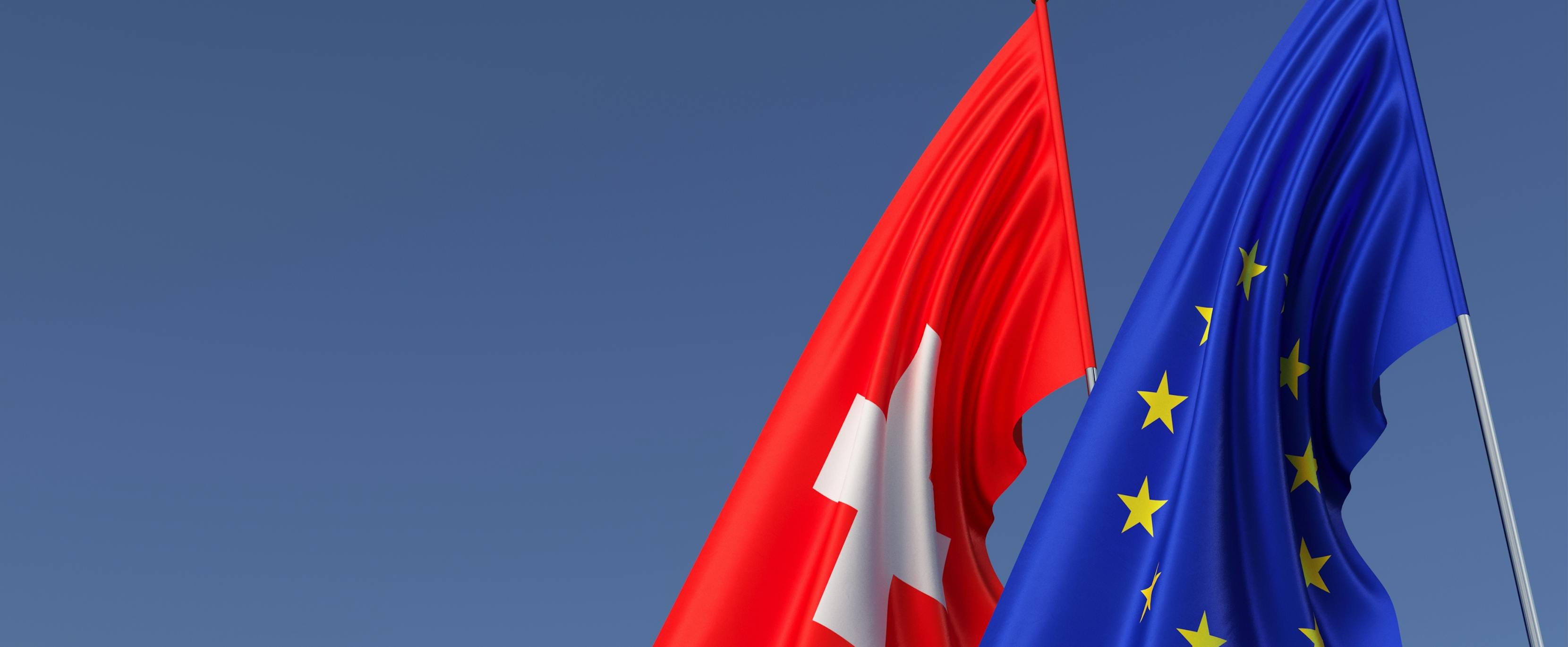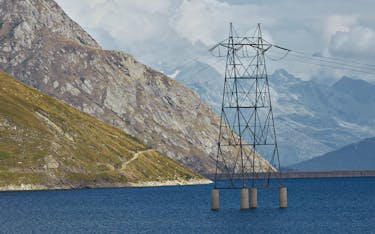
Where does the electricity we need come from?
Most of the electricity we consume in Switzerland is produced in domestic power plants. We import the rest from abroad. This is especially the case in the winter months. During this period, up to 40% of Switzerland’s electricity requirements are covered by energy from abroad, mainly from Germany and France. In summer it is the other way round, when electricity is often exported. The electricity grid is needed to ensure that the electrical energy reaches the consumers. With its transmission grid, Swissgrid provides the motorway, so to speak. Large amounts of electricity can be transported over long distances via this grid. However, Swissgrid does not produce any electricity itself. Nothing works in the transmission grid without interconnection.
What does this mean for Swissgrid?
Interconnection is a success factor for Swissgrid, and for Switzerland it is a guarantee of security of supply. Within Switzerland, we work closely with the domestic power plant and distribution system operators. Outside Switzerland, integration into the continental European interconnected grid is indispensable. Our close relationships have substantial advantages. Without this interconnection, the import, export and transit of electricity would not be possible. Integration into Europe also makes a significant contribution to ensuring the stability of the Swiss electricity grid. In simple terms, the larger the network, the more stable the overall system. Power plant failures or fluctuations can be managed more easily in a large community.
Is a functioning European network a prerequisite for a successful energy transition?
Yes, this applies to the whole of Europe, including Switzerland. We are dependent on participation in the overall system and in its further development. At European level, one of the things that is needed is facilitated energy exchange. If there is not enough wind energy from Germany, for example, it must be possible to trade surplus solar energy from Portugal efficiently. Harmonisation within the EU therefore also aims to enable electricity to flow quickly and easily within Europe.
Interconnection is a success factor for Swissgrid, and for Switzerland it is a guarantee of security of supply.
Andrea Mäder
What do you think about the current level of cooperation in Europe?
For Swissgrid, cooperation with its European partners is essential for ensuring grid security. It is vital for the stability of the interconnected grid that everyone abides by the same rules. At a technical level, a high degree of coordination is needed; cooperation with the European transmission system operators has been very constructive and solution-oriented for years. The other operators are aware of Switzerland’s importance for the continental European interconnected grid. Recently, however, this cooperation has been marred by political issues. The current political situation between Switzerland and the EU is hampering the well-functioning technical cooperation which is so important for us.
What does the reduction in cooperation mean for Switzerland?
We are increasingly isolated as a country. Switzerland’s progressive exclusion from the European internal electricity market also has disadvantages for domestic energy producers. Our hydropower plants are very flexible when it comes to balancing fluctuations in the electricity grid through control energy, for example. Yet we are unable to take advantage of the technological competitive advantage due to our exclusion, and the electricity producers miss out on revenue.
And for Swissgrid?
If Swissgrid is excluded from European processes, the system stress in the transmission grid increases. Without an electricity agreement, Switzerland is excluded from short-term European energy exchange. The transport capacities for energy exchange are determined and allocated in what are referred to as capacity calculation regions. Without an agreement, the Swiss grid elements are not sufficiently taken into account. This increases the risk of unplanned electricity flows. These unplanned flows are increasingly endangering grid stability in our country. Swissgrid must intervene in such cases and use electricity to stabilise the grid. This electricity is then unavailable to supply end consumers. In addition, the measures are time-consuming and costly.
What would it take to improve the situation?
At the moment, Switzerland has one of the most stable grids in the world and adequate security of supply. But simply maintaining the status quo is not enough for the future. In order to guarantee security of supply in the long term, various components are needed: a stable grid, high enough volumes of energy produced in Switzerland, and cooperation with European partners. Without cooperation, nothing is possible; Switzerland going it alone would scarcely be technically feasible and would not make economic sense.
Simply maintaining the status quo is not enough for the future.
Andrea Mäder
What options does Swissgrid have for action?
Swissgrid is committed at European level to maintaining system security from a technical perspective. This means that we conclude contracts with European transmission system operators. However, these contracts don’t solve all the problems that arise due to the lack of an electricity agreement. Our contractual partners are subject to national and European regulations. They often need approvals from the relevant regulatory authorities to work with us. We are dependent on an intergovernmental solution for the future. Only this type of solution can create a stable framework for cooperation with the EU and thereby ensure a high level of security of supply in Switzerland. An electricity agreement with the EU remains the ultimate goal for us. As an interim solution, we could imagine a purely technical, intergovernmental agreement.
What would this type of agreement have to contain?
This type of agreement would omit the question of access to the European power market. On the other hand, it would ensure that we are involved in all the technical instruments and processes to ensure grid security, for example. The legal basis for this already exists. The Federal Council has the jurisdiction to conclude an international agreement to this effect.
Links
European internal electricity market





